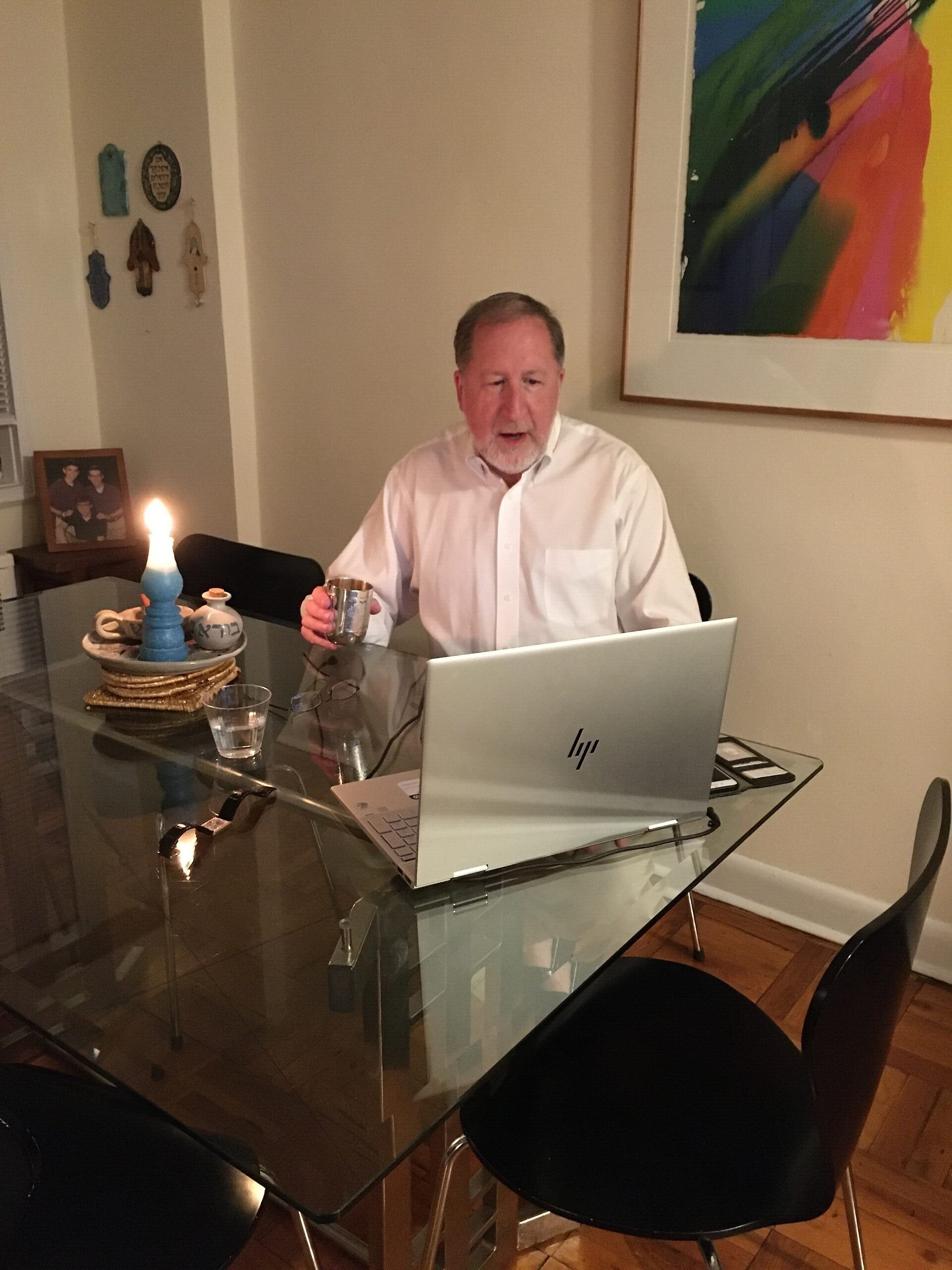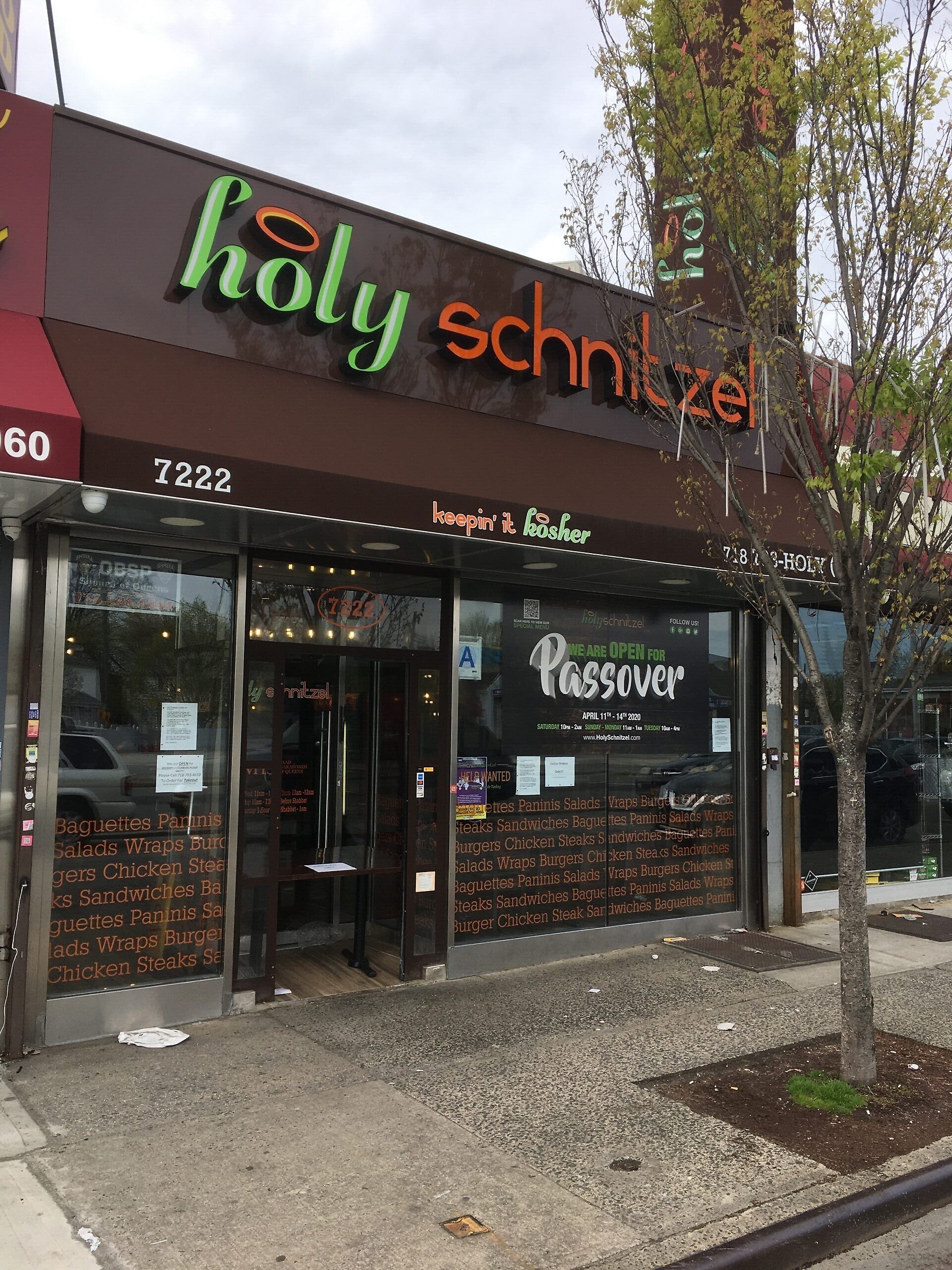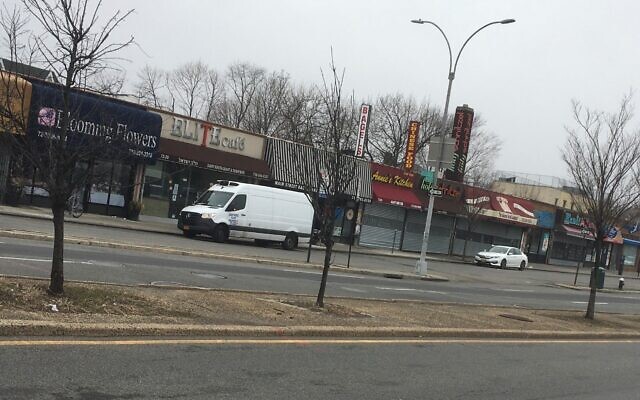COVID-19: Reporting from New York Epicenter
Rabbi Paul Kerbel, a former Atlanta rabbi shares experiences with daily Jewish life and conducting funerals.
It is a Monday morning before Passover at a cemetery in Southern New Jersey. I arrive to officiate at the funeral of a parent of one of my members. My congregant’s mother died after a long battle with a form of ALS. This was not a death caused by COVID-19. But it was my third funeral service in five days. The scene was deeply sad both to the mourners and to me. There were 10 people present. The Jewish funeral home placed several chairs 6 feet apart. There was a card table with hand sanitizer and a box of disposable gloves which were to be used when holding the shovels for the final act of hesed shel emet, (deeds of lovingkindness), placing earth on the casket in the grave. It was sad because the man mourning the death of his wife and his children who were present could not hug each other or comfort each other. The deceased was eulogized and all of the appropriate prayers were recited. But in our new normal of COVID-19 precautions, the warmth and intimacy usually seen at a funeral service was missing.
As I write this essay, I have now officiated at five funerals in the past 15 days. Each cemetery has different rules. One cemetery in New Jersey keeps its gates locked, and we had to wait for the supervisor to unlock it to let our small procession proceed. One cemetery only allowed the mourner, her son, the funeral director and me. Some cemeteries provide shovels for burial. Others now require you to bring your own! The COVID- 19 pandemic has changed many things, few as heart-wrenching as the rules that apply to the death and burial of our loved ones.
My wife Melissa and I split our time between my New Jersey congregation’s home in Cranford, N.J., and our apartment in Forest Hills, Queens. Our apartment allows Melissa close proximity to her mother, now 96 years old and living in a kosher assisted living complex two miles away, and a quicker commute to her fundraising position in Manhattan. With all of the services, classes and meetings confined to Zoom, we chose to spend our “Passover for two” in Forest Hills.

We are at the epicenter of the epicenter of the pandemic in New York. Queens, Brooklyn and neighboring Nassau and Suffolk counties on Long Island are recording high levels of COVID-19 cases. Especially in the immigrant communities of New York City and Long Island, there are higher levels of death from the virus.
Our neighborhood, highly diverse but with a significant Jewish population, looks like a ghost town. The kosher bagel store closed a week before Passover. Several kosher restaurants were still open for takeout and two small kosher markets were bustling with pre-Passover shopping. But Queens Boulevard, one of the main thoroughfares, two blocks from our apartment, is quiet. Most stores are shuttered. Even stores and restaurants that are allowed to remain open have closed, given reports that the week that has passed and the week ahead will be at the top of the curve that the mayor of New York City and governor of New York hope will

flatten even as you read this. A number of small supermarkets have signs on their metal gates saying they are closed to ‘restock.’ I believe that they are closed to keep the store owners and their employees safe.
A few hours before the first seder, I officiated at a funeral service on Long Island. Dressed in my suit, a man joined me in the elevator heading upward to our respective apartments. We were both wearing face masks. He commented, “Oh, someone is still working!” I shared with the man, who I had seen on the elevator a number of times before, that I am a rabbi and that I wish I hadn’t had to officiate at a funeral that afternoon. He replied, ‘thank you rabbi. It is scary out there.’
It is scary. Many people are sick. The curve seems to be flattening in New York. Passover is different this year. Very different. But all we can do is be patient, follow the rules and hope that there is some light at the end of the tunnel.
My synagogue has an old-fashioned sign outside with plastic letters and numbers that we change each week. Before heading to New York from New Jersey, I added the following words to the sign outside for both my congregants and many non-Jewish neighbors to see. It is the words from Psalm 121:
“I turn my eyes to the mountains;
from where will my help come?
My help comes from God,
maker of heaven and earth.
The guardian of Israel neither
slumbers nor sleeps!
God will guard your going and coming
now and forever.”
May God watch over us and protect us and may we see the day that brings us back to our respective family, friends and community with lots of warm hugs and kisses.
Rabbi Paul David Kerbel is the spiritual leader of Temple Beth-El Mekor Chaim in Cranford, N.J., and a member of the Board of Governors of The New York Board of Rabbis. From 2003 to 2015, he was associate rabbi of Congregation Etz Chaim in Marietta and served in numerous leadership capacities in the Atlanta Jewish community.




comments